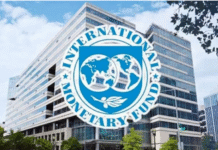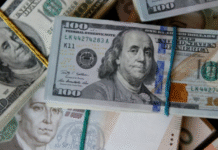
The new budget for the upcoming fiscal year is unlikely to provide respite from one of the longest spells of sustained inflation in Bangladesh as the government’s measures appear to be missing the impetus required to contain the price spiral.
Although the government acknowledged that people are facing real suffering due to high inflationary pressure, the steps it took to fight the rise in prices remain inadequate.
For example, the government has kept the tax-free income threshold unchanged for the next fiscal year, starting on July 1.
At the same time, it plans to raise revenues through VAT by 12 percent over the current year’s target.
This may mainly be achieved by increasing value-added tax, which will ultimately compound the burden on the masses, irrespective of their income levels.
The budget has also brought no major good news when it comes to allocations for social safety net programmes although the need for state-sponsored assistance for the poor and low-income groups has never been higher.
MA Razzaque, research director of the Policy Research Institute, said the government reduced the growth of the budget size this year to squeeze deficit financing and reduce inflation.
The targeted budget deficit is 4.6 percent in FY25, which is slightly lower than the revised budget deficit for the current year, which stands at 4.7 percent.
This indicates that the budget deficit is not controlled much. As a result, the effectiveness of the budget deficit will not translate to taming inflation, he said.
Although the government targeted to reduce the inflation rate to 6.5 percent, it maintained the higher GDP growth rate target of 6.75 percent. If the government targets higher GDP growth, it will stoke inflationary pressure.
“But this is normal,” Razzaque said.
As inflation has remained at elevated levels for nearly two years, the government should have increased the tax-free income level.
Instead, the tax-free income level remained the same at Tk 3.5 lakh while some comfort was given to slightly upper-income people. The tax rate was 10 percent for people whose income was between Tk 4.5 lakh to TK 7.5 lakh but that slab has been changed to Tk 4.5 lakh to Tk 8.5 lakh.
Another demand from economists was increasing the allocation for social safety net programmes as poor and low-income groups have seen the rapid erosion of their purchasing power while incomes have either stagnated or declined.
But that was hardly reflected in the budget.
Funds equivalent to about 2.43 percent of the GDP were allocated for social safety net schemes for FY25 compared to 2.52 percent in the current year.
Still, the allocated amount increased to Tk 136,026 crore from Tk 126,272 crore.
The government also increased the number of beneficiaries by around 4.5 lakh.
However, the allowance per person remained almost the same, with the sole exception being the programme for widows, which has been boosted from Tk 500 to Tk 550 per month.
And although the allotment rose by around Tk 10,000 crore, more than Tk 9,600 crore of that will have to be spent on pension management.
So, poor and marginalised people will not really benefit from this incremental increase, Razzaque said.
Furthermore, the government has targeted to raise Tk 137,500 crore from the banking sector to meet the budget deficit.
In the budget for the current year, the government had targeted to raise Tk 132,395 crore from the banking sector. However, it revised this to Tk 155,935 crore to meet its budget deficit amid lower revenue.
If the government similarly revises up the amount it borrows from the banking sector in FY25 and the central bank prints money to narrow the deficit, inflationary pressure may be fuelled.
The Consumer Price Index grew by an average of 9.73 percent in the first 11 months of the current fiscal while it was 8.64 percent during the same period a year prior, showed data of the Bangladesh Bureau of Statistics.
In fiscal 2022-23, the average inflation rate was 9.02 percent, far higher than the average of 6 percent in recent years.
Such elevated levels of inflation have forced many people to cut down on consumption.
The World Bank has projected that the decline in purchasing power has led to the inclusion of many among the new poor.
This means the country may witness challenges in reducing the poverty rate despite its previously stellar performance in this regard.
So, economists urged the government to cut spending and make effective the contractionary monetary policy, which was announced recently.
Some good news is that the government cut the source tax for rice, wheat, potato, onion, garlic, lentils, ginger, turmeric, dry chilli, pulses, flour and some other food items from 2 percent to 1 percent.
That should create the opportunity to reduce the prices of these products. However, whether the benefit will reach the consumers will depend on suppliers and producers that control the prices of these products.
Daily Star









